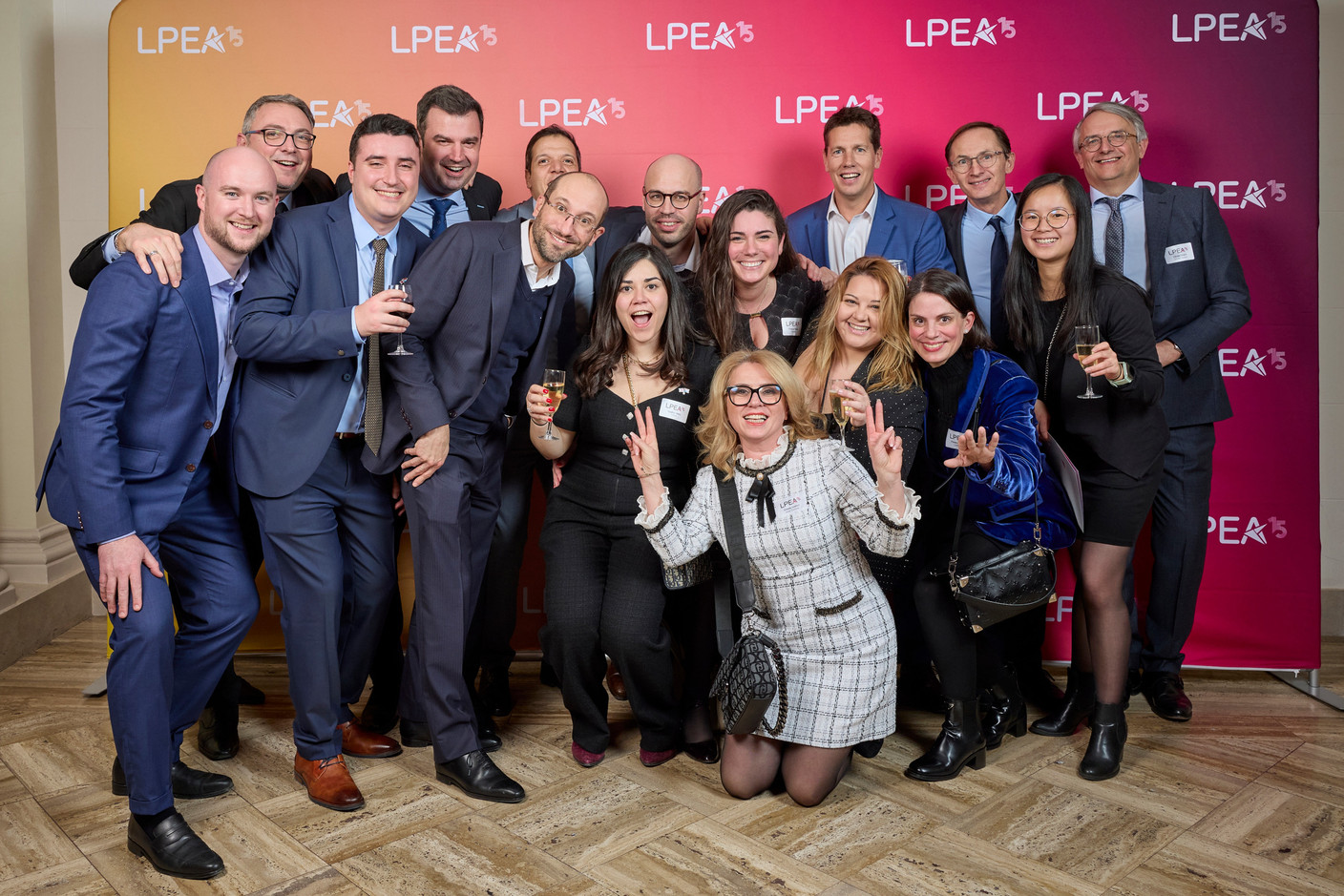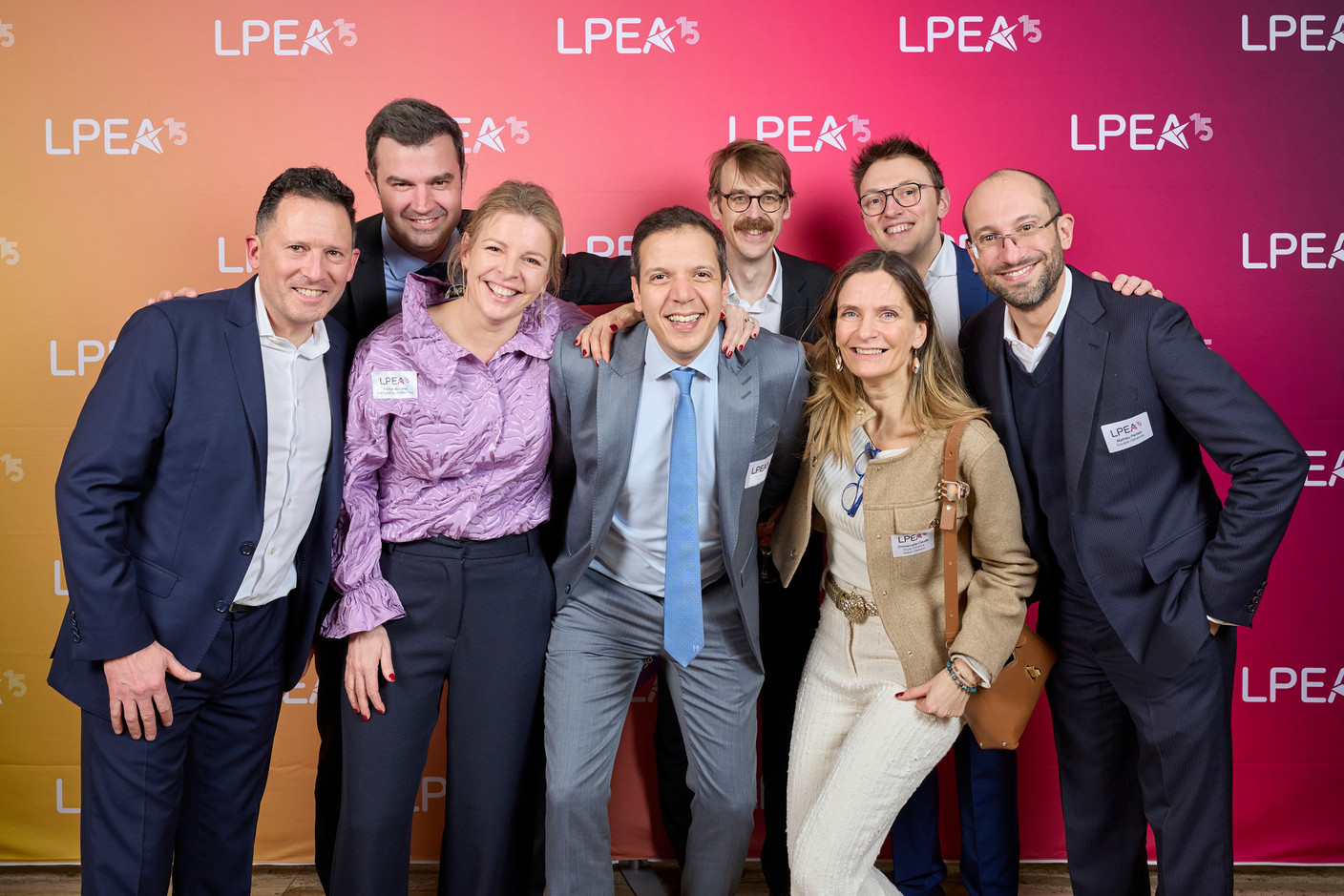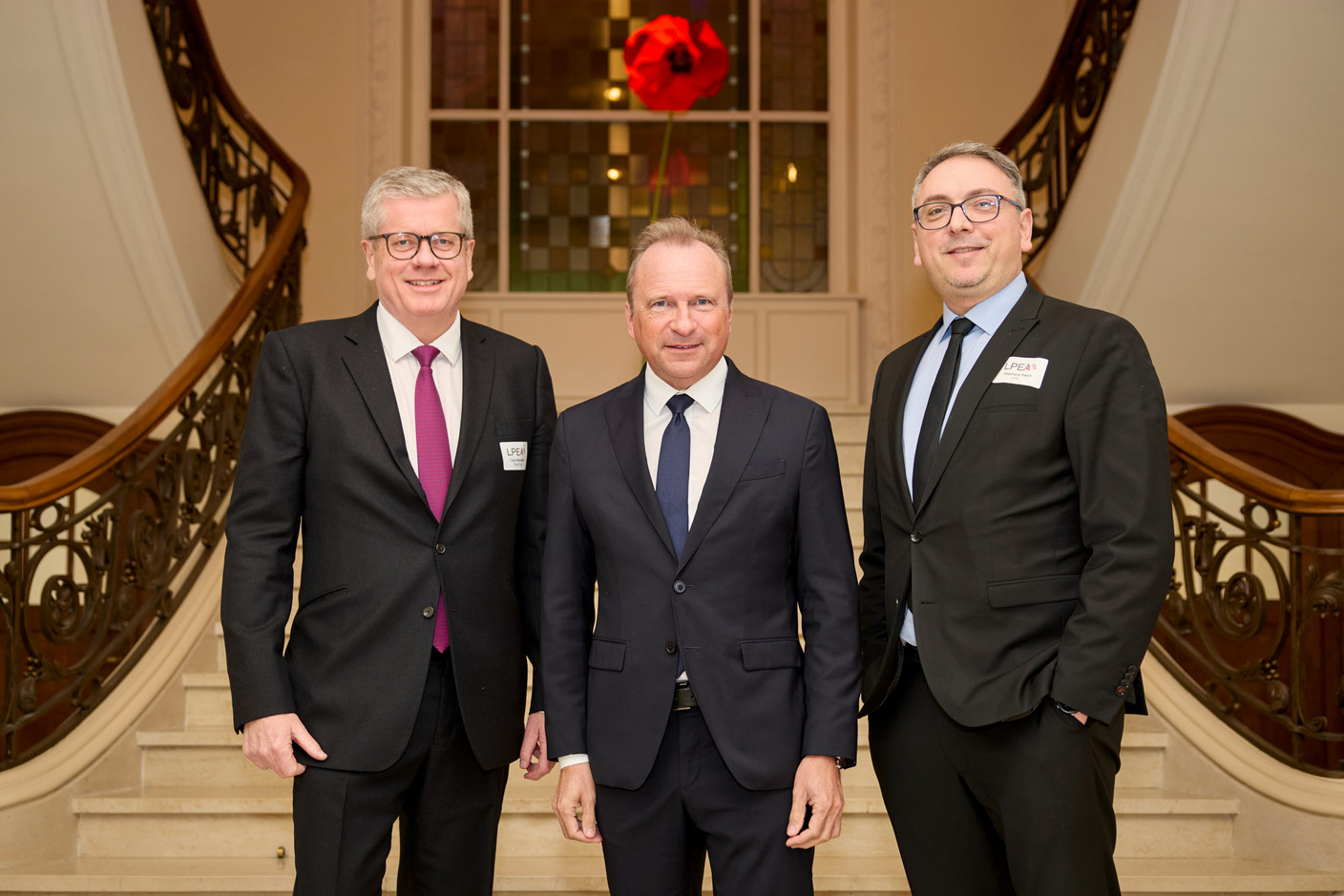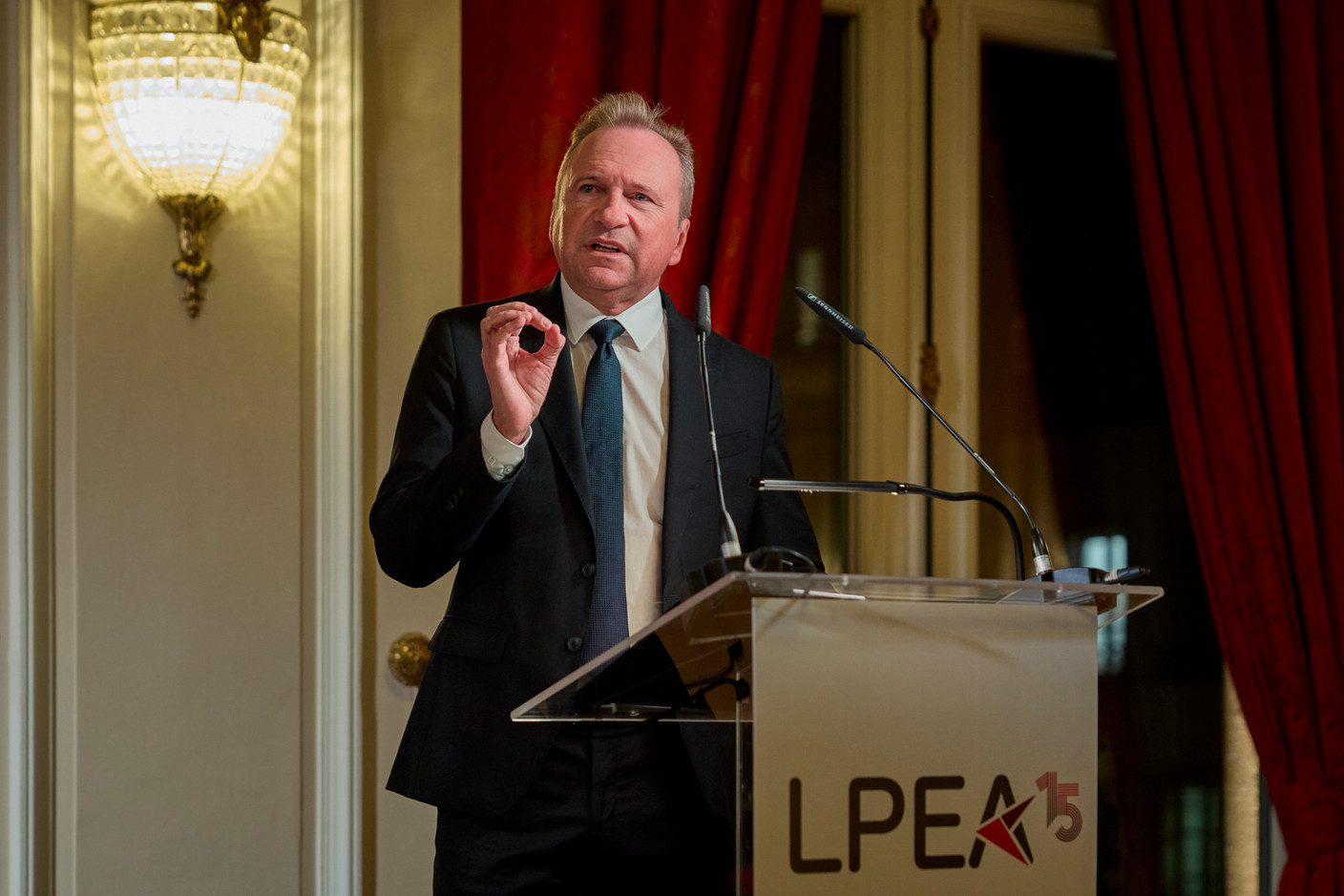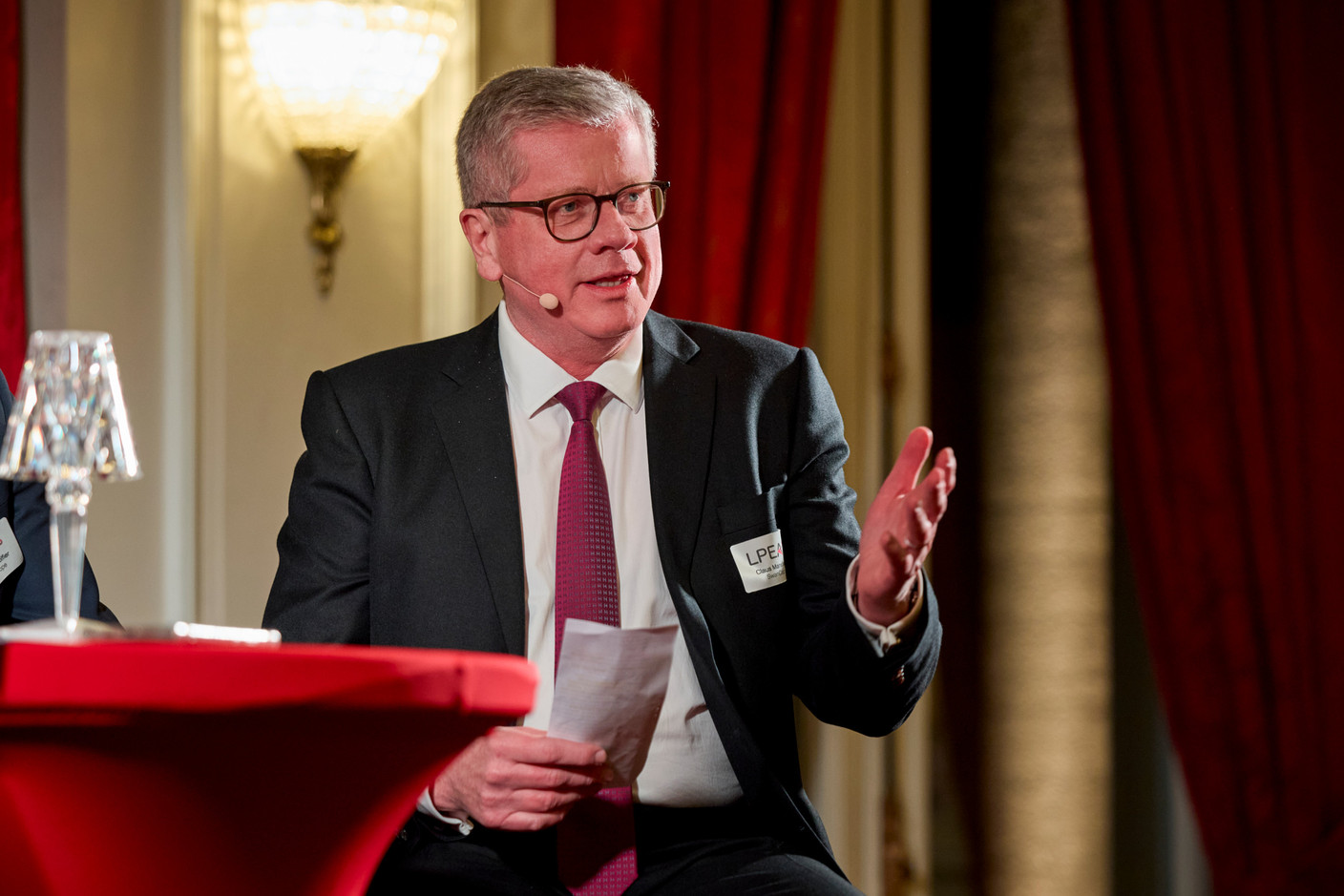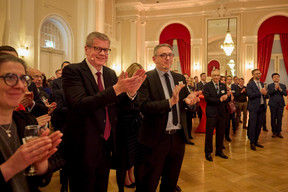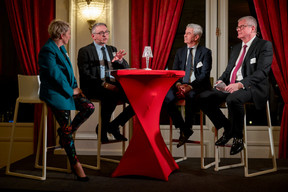Founded in 2010, the Luxembourg Private Equity & Venture Capital Association (LPEA) on 6 February 2025 celebrated its 15th anniversary at the Cercle Cité. The event gathered some 500 industry players and featured a speech by finance minister (CSV) on the and a panel discussion amongst private equity experts.
In the last five years, noted panel moderator , there have been several striking shifts in the industry. For LPEA chair , who spoke in his capacity as chairman of Swancap’s regulated AIFM management company in Luxembourg, the covid-19 pandemic brought the ubiquitousness of teleworking, fear (stock markets fell 35% in March 2020), lower interest rates and a “financial boom.”
“We realised our businesses were actually working,” said Mansfeldt. “Global fundraising--which could be one of the victims of that type of [situation] where you’re sitting at home--it hardly budged. We raised $500bn in 2020, which was close to the 2019 high mark. 2021 was $770bn--an all-time high. So, the industry actually took off despite this shock.”
Then in February 2022, Vladimir Putin launched his full-scale invasion of Ukraine, which brought with it deglobalisation, supply chain problems and inflation, he continued. The US Federal Reserve launched the “most aggressive” series of interest rate hikes in its history, going “from 0.25% to 5.5% in the space of 18 months or so. And that sent shock waves through the industry.”
“A lot of transactions just froze,” Mansfeldt explained. “It wasn’t a fall in asset values necessarily, but it was a freeze of the market; supply and demand not meeting. There was no match between seller and buyer, basically because people had to adjust to the new interest rate environment and to the new geopolitics.” The “pendulum” swung back, which, for Mansfeldt, was “harder than covid to deal with in terms of fundraising for the firm, and in terms of delivering liquidity back to investors so that they could invest in the next funds.”
An “unstoppable train” of regulation--AIFMD2, GDPR, SFDR, CSRD, Dora and Mica, to throw out some of the alphabet soup of acronyms facing the financial industry--has also arrived in the past few years, he added. “There’s only one [piece of] good news from that, which is that deregulation today is no longer taboo.”
Three trends to watch over the next five years
That, in a nutshell, covers the industry in the last few years. Looking ahead to the next five years, asked Canel, is there reason for optimism? What are the trends to watch?
On the policy side, topics like competitiveness and sovereignty have come into the spotlight, said Eric de Montgolfier, CEO of Invest Europe, an association that represents the European private equity community. “We will be an important part of the financing of the EU’s priorities going forward. It’s challenging, but it’s exciting because it’s an opportunity for our industry to support the goals of Europe.”
De Montgolfier has observed three trends in the last couple of years which he expects to impact the industry in the future. The first is consolidation, with private equity having matured from a “cottage industry” to a major way of financing European businesses. But there’s the risk that we’ll end up with only a few players who do everything, he added. “That will kill innovation; that will kill emerging managers. And I believe that what made the success of the industry is the fact that it re-invented over the decades by having people identify new trends of investment that they wanted to follow.”
Read also
Trend two is retailisation, which is being driven by appetite from family offices and high-net-worth individuals, as well as interest from retail investors. There’s a risk, however, that regulation that prioritises “protecting retail investors rather than wider access to the high return that we provide to our institutional investors will wipe out most of the democratisation opportunity,” said de Montgolfier. In addition, “by giving access to retail investors, we will increase the perception from central bankers and regulators of systematic risk that may affect potentially European financial stability. So it’s really important to set the right tone--do it well--so that we don’t fall into that track. Because if it happens, the risk that that will be associated with the failure of a product will be spectacular.”
Last but not least, the private equity industry--on top of generating financial returns--also produces “significant social value.” It contributes to the economy, job creation and more, said de Montgolfier. “We created--in 2023--450,000 net jobs across Europe.” So, he argued, a third trend to watch concerns the benefits that private equity brings to society at large.
What’s next for Luxembourg?
The LPEA is “very proud” that the grand duchy is moving from a “back-office” position to more “middle-office” roles, with valuation specialists, risk managers, CFOs and CEOs, said LPEA CEO . The “next frontier” for Luxembourg would be more front-office positions, like investor relations, fundraising and financial analysts. “We are trying really to build that ecosystem.”
Read also
“On the other side, we also try to have more investors in Luxembourg,” he added, which, together with the limited partners and general partners already present, “will complete the entire picture.” It will also be important to work more on transactions, M&A and fund financing.
Properly integrating artificial intelligence will also be key, along with the mutualisation of certain platforms to allow players to use technology together.
What hasn’t happened yet, but could happen
Mansfeldt concluded with a review of things that that were expected to happen over the last five years but haven’t happened (yet).
First on his list: Luxembourg becoming an investor relations hub. “We thought it was going to happen. It has not happened yet.” Many large firms have their investor relations offices in New York, London or Paris. “Luxembourg doesn’t fit into the agendas for most of them yet. I think that’s a little bit undeserved, because there is a lot of money here.” There are over 100 family offices, as well as large insurance companies, private banks and “increasingly creative feeders and other structures,” said Mansfeldt. “But there is one large piece missing, which is the state pension fund. Unfortunately, Luxembourg is in a very small minority globally of pension funds with long-term money not picking up the premium returns available to it from private markets.”
“It’s not a criticism; it’s an encouragement. It’s something I think that could be helpful,” he said. The GIC sovereign wealth fund in Singapore, for example, invests in private equity and real estate; Canadian pension funds allocate assets to private equity (this figure stands at 10-30% of AUM, according to a ); in Sweden, pension funds invest in private equity funds as well as funds that focus on other alternative asset classes, such as property or infrastructure (alternative fund assets make up roughly 10% of their total assets, said a citing data from the European Insurance and Occupational Pensions Authority).
Read also
“The other thing that hasn’t happened is automation of fund administration,” continued Mansfeldt. “Blockchain as an efficiency tool has not yet happened. I do think it will happen, and I do think it is coming. It’s just one of those incredible technologies that will just take a long time to work its way through.” Artificial intelligence is “on the scene” and could perhaps be even more significant in terms of efficiency gains.
“The last thing I’ll mention is the invasion of the Brits. It never happened, post-Brexit. It hasn’t happened yet,” he said. But thanks to the new government and the incentives put in place to attract executives, “we have some really powerful messages we can advertise globally in terms of attractiveness.”
A final request for his list? “A little bit of clarification around some of the tax issues pertaining to the private equity industry.”

